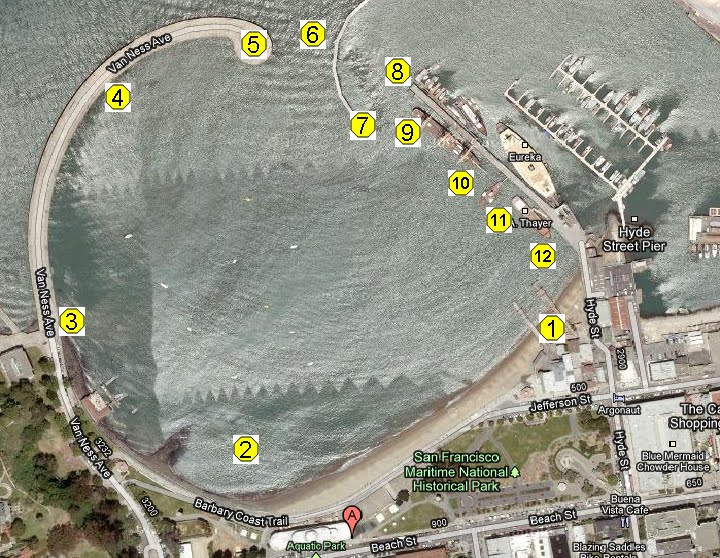Monday, 09/13/10
A man with an impossible name has studied and written extensively on the subject of happiness and creativity. Mihály Csikszentmihály is probably best known for coining the word “flow” to describe a psychological state of peak performance. He created a dual axis chart which has skill level plotted on one axis from low to high. The other axis plots challenge level from low to high. As one might expect, when the skill level is high and the challenge level is high, a person can experience a “flow state,” being fully engaged and energized.
On this chart, Mr. Csikszentmihály adds apathy, worry, anxiety, arousal, control, relaxation, and boredom. This is a pretty good list. I’ve experienced all these emotional states while swimming. But I’d add fear and anger even knowing it would disturb the symmetry of a beautiful chart. While fear and anger might not belong on a chart of emotional states related to happiness and creativity, they definitely belong on a list of feelings experienced during cold, open water swimming.
All Bay swimmers experience fear. This is a generalization based on extensive private study over more than twenty years. Even the toughest, most stoic swimmers have admitted being scared occasionally. Close encounters with seals and sea lions provoke a fear response. When the pinnipeds start biting and scratching, the fear factor increases. Swimming in contaminated water, colliding with stinging nettle jellyfish, jamming a hand into a submerged plastic garbage sack, dive-bombing brown pelicans, and getting swept into a barnacle-encrusted piling are dependable fear-inducers. Just getting into the cold water in mid-winter can scare swimmers with the prospect of hypothermic catalepsy.
I experience fear and anger in rapid succession when faced with a narrow racing shell streaking through Aquatic Park at ten miles an hour. The anger really ratchets up when the rower shouts out “watch where you’re going, ***hole!” as the oar dips inches from my head and the shell zips past. This is a sure cure for boredom.
Boredom most often strikes on relatively short, one and two mile swims around Aquatic Park. On a clockwise loop around the cove, it usually kicks in just past the Goalposts. I start thinking, “how much longer?” “Am I really up to a second loop?” A year ago, this oft-recurring ennui made me seriously question how anyone could possibly swim steadily for hours on end without succumbing to terminal boredom.
Now I savor the vast irony of not having once been bored on the long training swims. Each one has represented a new milestone in my swimming career, generating doubt about its potential success. Each one began with worry and anxiety which typically lasted for about ten to fifteen minutes. Then, I’d get into a rhythm and begin to relax, concentrating fully on my stroke mechanics. Sometimes, when the exquisite light, the clear water, and the soaring scenery conspired, I’d experience the state of arousal that accompanies the aesthetics of a wilderness experience in an urban setting. At times like this, I’ve enjoyed a relaxed and peaceful meditative state that a Buddhist might describe as “no-mind.” This alone has made the whole project worthwhile.
Of course, the good times don’t last. Usually, especially after five or six hours, the predominant emotions return to worry, anxiety, and fear. I worry about which ache, which twinge, or which cramp might become so overwhelming as to cause me to quit. I fear the self-condemnation that would ensue. This fear is such a useful tool to keep me going that I've named it “la muerta pequeña." Cliff Golding’s mental technique of clearing debris away from the metaphorical “trap door” is another handy invention to deal with the anxiety.
Lindsay and I leave for England a week from tomorrow. The first day of my window is a week after that. The last thing I’m worried about in the attempt to swim the English Channel is boredom. I’m just too worried and anxious for boredom to stand a chance.
6 years ago


Great read Lerry! I do feel all of the emotional states you have mentioned plus some divine grace and feelings of gratitude during and after any winter polar bear swims 🧊🐻❄️🏊♂️🐬🙏😀
ReplyDelete